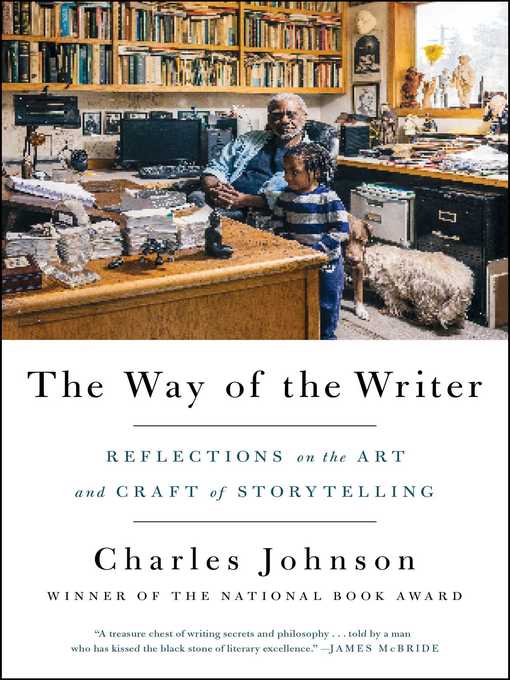
The Way of the Writer
Reflections on the Art and Craft of Storytelling
کتاب های مرتبط
- اطلاعات
- نقد و بررسی
- دیدگاه کاربران
نقد و بررسی

September 26, 2016
National Book Award–winner Johnson (Taming the Ox) here collects enlightening but somewhat snobby essays about his process and his ideas about literature and writing. Johnson starts off by proclaiming, “One must begin with a genuine love of art.” Though he says “rigid formulas and rules” aren’t helpful, this doesn’t stop him from making more than a few uncharitable comments about the value of genre fiction. Additionally, his description of his desired reader—“intelligent, learned, and sophisticated”—might alienate readers who suspect he isn’t referring to them. Johnson’s writing style here is unvarnished. As he explains, he views essays primarily as ways of answering questions, and his interest in reaching those answers animates his nonfiction more than the prose does. Johnson’s process, from morning exercises to writing for several hours a day, is fascinating to read about up to a point, but is detailed ad nauseam. Perhaps the most deeply felt passages are those dealing with Johnson’s mentor, novelist John Gardner (Grendel), whose lessons and friendship Johnson clearly cherished. Johnson’s absolute statements will turn off some readers, and there are a handful of essays that feel like afterthoughts. Still, there are valuable insights to be gleaned about writing and reading and the work that goes into both.

September 15, 2016
A pithy guide for writers and those who teach them.In a series of short essays, Johnson (Emeritus, Creative Writing/Univ. of Washington; Taming the Ox: Buddhist Stories and Reflections on Politics, Race, Culture, and Spiritual Practice, 2014, etc.), a MacArthur fellow and winner of the National Book Award, Writers Guild Award, and many other honors, draws on his experience as a writer (of novels, essays, screenplays, and philosophy); editor (of the Seattle Review); fiction judge for the National Book Award (twice), PEN/Faulkner Award, Los Angeles Times Book Award, and Pulitzer Prize; and longtime teacher and mentor to offer practical advice on the writing process and the writing life. Although he refers frequently to his mentor John Gardner--"a bluff, combustible, and brilliant teacher"-- Johnson admits that he never took a college writing workshop and, in fact, looked on them with disdain. "To my eye," he writes, "they were dominated by the instructor's personality and unsolicited political opinions, and took an approach that was highly subjective," encouraging immature students to "write about what they know." When he took on the task of teaching creative writing, he designed his workshops to be demanding, with rigorous exercises meant to free students from solipsism. "A Boot Camp for Creative Writing" offers examples of those exercises; "Opening Sentences: A Hundred Rays of Light" includes examples of admirable first lines from mostly canonical novels, including Moby-Dick, Kafka's The Trial, and Toni Morrison's Beloved. Echoing many other writing guides, Johnson focuses on the power of precise words, the importance of developing voice, and the joys and challenges of revision. "Sometimes, he admits, "my ratio of throwaway to keep pages is 20:1." Revision, he adds, "is a combination of cutting away (like sculpting the sentence from stone) and also a constant layering of the language (like working with the sentence as you would clay)." Throughout, Johnson's voice is generous and warm, even while he is cautioning writers to be their own ruthless editors. A useful writing guide from an experienced practitioner.
COPYRIGHT(2016) Kirkus Reviews, ALL RIGHTS RESERVED.

July 1, 2016
A National Book Award winner for "The Middle Passage" and one of our leading scholars on race and literature, Johnson is also professor emeritus at the University of Washington, where he spent over three decades mentoring aspiring writers. This book is both a meditation on the meaning of literature and a practical guide to the art and craft of writing fiction. Opening with word choice, sentence structure, and narrative voice, then investigating important mechanics such as scene, dialog, and plot, Johnson arrives at the big, juicy questions for writers and readers alike. What makes writers write? What distinguishes literary fiction from more popular reads? And how are philosophy and fiction, which some people place at odds, actually related?
Copyright 2016 Library Journal, LLC Used with permission.

























دیدگاه کاربران